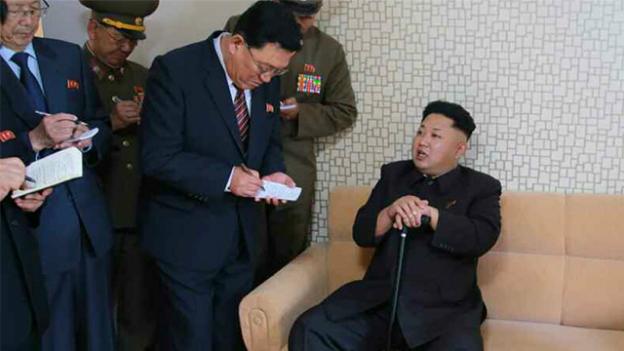Kim Jong-un's 'weight problem' and the pitfalls of spy briefings
- Published
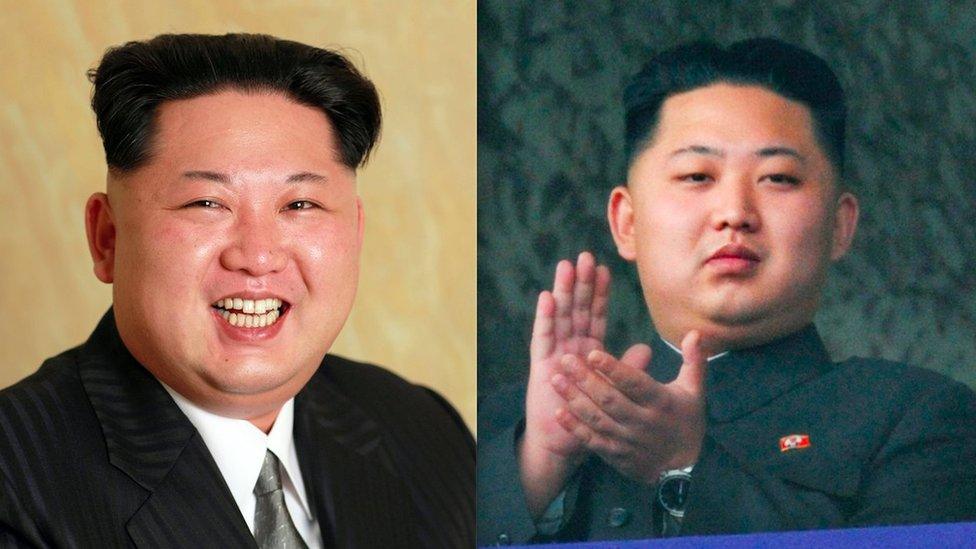
Kim Jong-un has noticeably gained weight since he took power, but this has led to a chain of speculation (left in May 2016, right in October 2010)
After South Korea's spy agency briefed politicians about North Korean leader Kim Jong-un's rapid weight gain, prompting speculation he suffered from paranoia-induced insomnia, the BBC's Stephen Evans reflects on the value of such observations.
The headlines are lurid and specific: "North Korea's Kim Jong-un 'binge-eating and drinking' to cope with assassination fears."
"NK leader suffering from insomnia, adult diseases," reads another.
Around the world, a briefing given by the South Korean National Intelligence Service is generating coverage. North Korea's leader has, we are told, gained an enormous amount of weight. He can't sleep. He fears for his life.
But how reliable are these briefings, which the South Korean spy agency gives the country's politicians? The truth is that their methods, like those of spies everywhere, are part hard information and part conjecture.
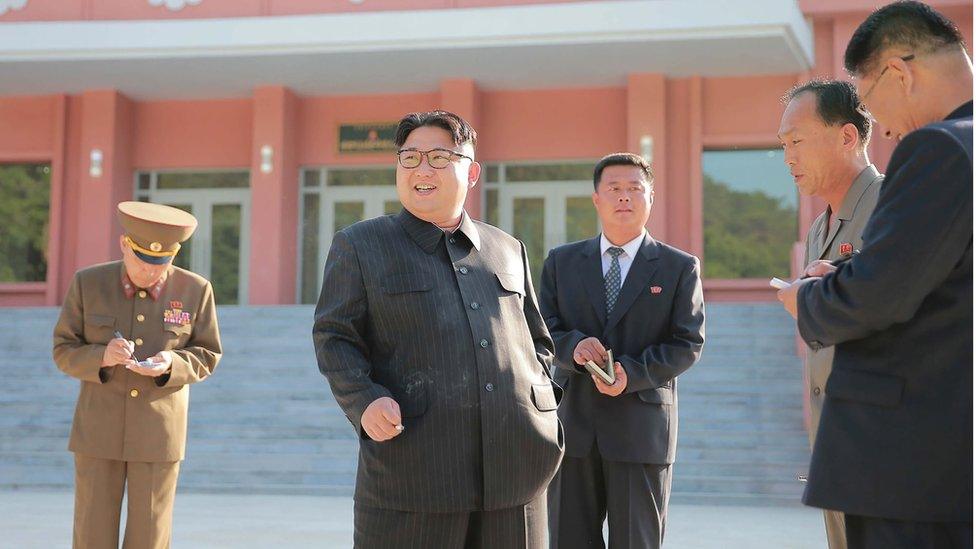
Despite his late father's warning that "a cigarette is like a gun aiming at your heart", Mr Kim was also recently pictured smoking
I once had lunch with an analyst from the National Intelligence Service (NIS). I can't tell you exactly who he was, because he refused to give out his business card. However, he opined that a woman in Kim Jong-un's inner circle was pregnant. When I asked how he knew, he replied that she was suddenly appearing in photographs with flat, sensible shoes.
He may, of course, have been right. Some mothers do say that when they were pregnant, they discarded uncomfortable heels.
But the story does illustrate the tenuous ways in which the analysis of photographs in the North Korean media might be hit or miss.
Maybe the lady being analysed by South Korea's spy agency just felt like a change of shoe. Maybe the NIS had further, corroborating information. We do not know.

More on Kim Jong-un

In the current case, concluding that the Supreme Leader has put on weight is easier. The pictures in North Korean media show the pounds which can't be photoshopped off. According to the National Intelligence Service, he was 90kg in 2012 but now weighs 130kg.
Similarly, two years ago, Kim Jong-un was shown limping on North Korean state television, and then, three months later, hobbling with the aid of a walking stick.
You don't need to be James Bond to conclude that there was something wrong with at least one of his legs. The surmising (probably in Seoul's intelligence agency, with the aid of medical experts) was that he was suffering from gout, an illness associated with over-indulgence, though there are other causes too.
He may have had surgery, which would have explained his absence from public view between the pictures of him limping in discomfort and then with a walking-stick.
But seeing the obvious in the photographs is easy. Drawing the right conclusions is harder.
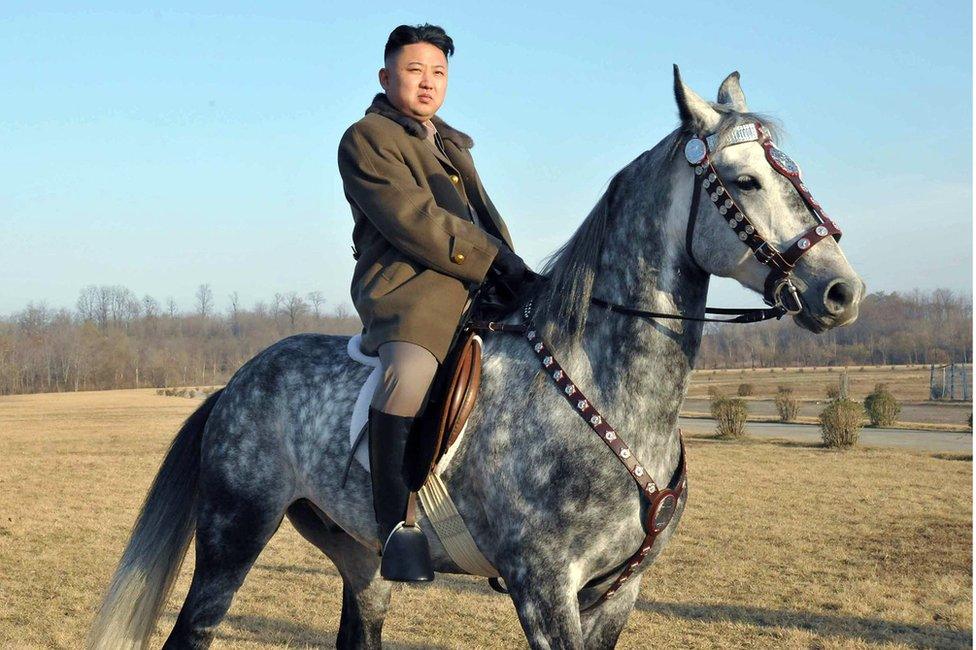
The young leader struck a rather more active pose in this image, not long after he took the reins of power
This kind of information usually emerges when the NIS briefs South Korea's parliamentary intelligence committee in private. This briefing to politicians then gets passed on to journalists and the information ends up in the newspapers.
There is obviously plenty of room for error and distortion in this process. How much spin is put on the bald facts is unclear.
In the latest case, the information published was a lot more than the visible evidence of Kim Jong-un's weight-gain. All kinds of theories were also posited.

The North Korean leader regularly visits food production facilities - here inspecting cornstarch and cookies at a factory in Pyongyang
South Korea's main news agency, Yonhap, reported the briefing thus: "Rep. Lee Cheol-woo of the ruling Saenuri Party, who chairs the committee, said Kim is currently under great stress due to his safety, which has led to excessive binge eating and drinking.
"Kim also fears that overseas media reports on his childhood may spread throughout Pyongyang, which may hurt his legitimacy as the leader of North Korea.
"During his childhood, Kim would stop eating for long periods of time when his mother scolded him, which reflects his stubborn character, Lee quoted the NIS as saying."

Kim Jong-un
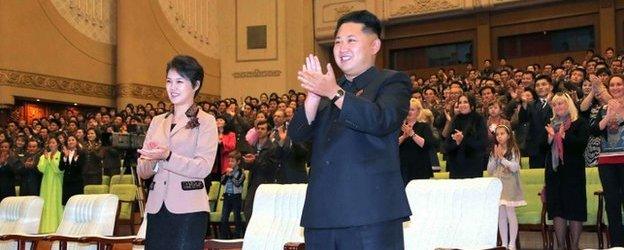
Mr Kim looked trimmer in 2012
Born in 1983 or early 1984
Youngest son of Kim Jong-il and his late third wife, Ko Yong-hui
Went to school in Switzerland before returning home and attending the Kim Il-sung Military University
In July 2012, state media announced Mr Kim was married to "Comrade Ri Sol-ju"
Succeeded his father as supreme leader following Kim Jong-il's death on 17 December 2011

The perils of trusting too much in such sources of information were borne out earlier in this year.
In February, the South Korean media cited a similar briefing by the NIS in which it was said that chief of staff of the North Korean army - Kim Jong-un's right-hand-man - had been executed. The South Korean headline was: "N Korea's military chief executed on corruption charges: sources."
Three months later, the South Korean government said that Ri Yong-gil, the general previously said to be dead, appeared to be alive. His name had appeared on a list of party officials.
Pictures of him in North Korean media showed him to be very much alive, though wearing three-star rather than four-star military insignia. It seems he had been demoted but not executed.
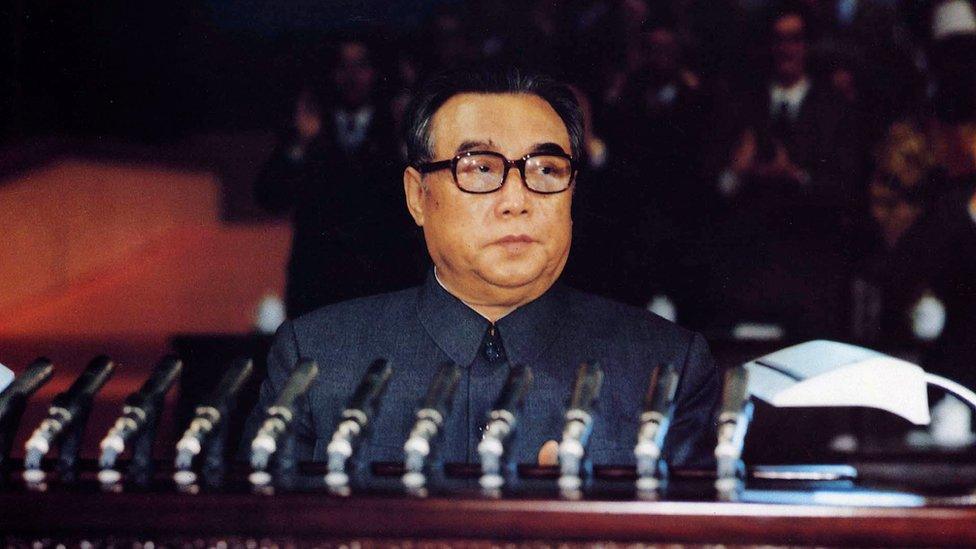
There were unsubstantiated rumours when Kim Jong-un took power, that he had gained weight or even had plastic surgery to better resemble his revered grandfather, the founder of North Korea, Kim Il-sung, shown here
None of this is to decry the work of intelligence agencies, making the best of scant information, including analysing photographs. But it is to caution against concluding more than the evidence justifies, and the weaving of elaborate theories into supposed fact.
More importantly, even if Kim Jong-un is unhealthy - and the pictures certainly suggest he might be - that certainly doesn't mean his reign is going to end soon.
- Published8 June 2015
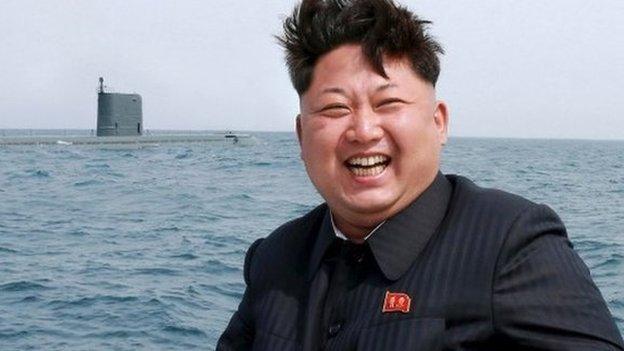
- Published9 June 2016
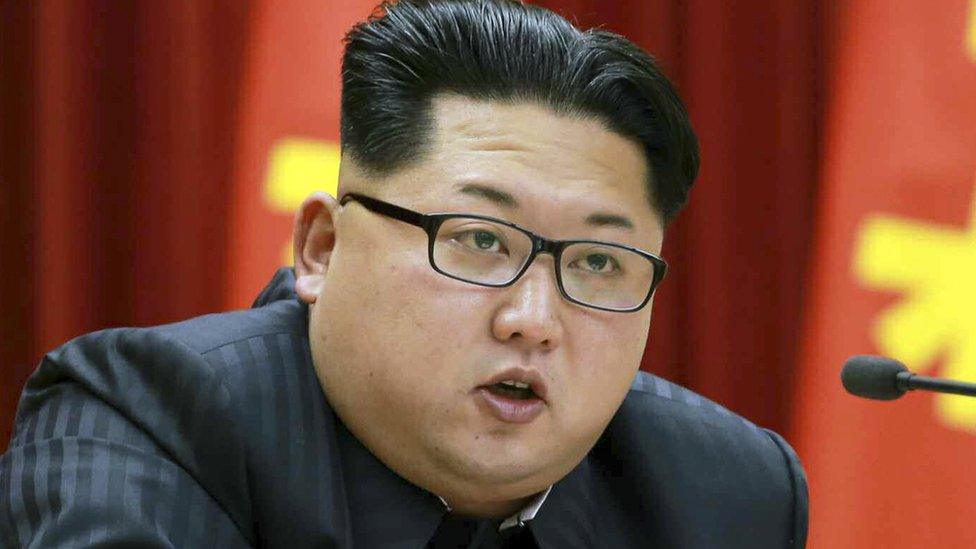
- Published28 May 2016
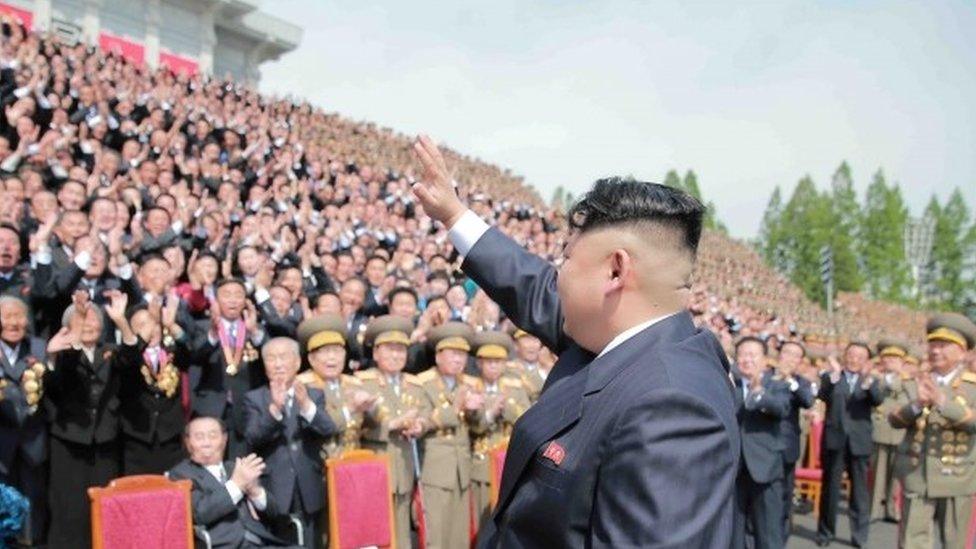
- Published6 May 2016
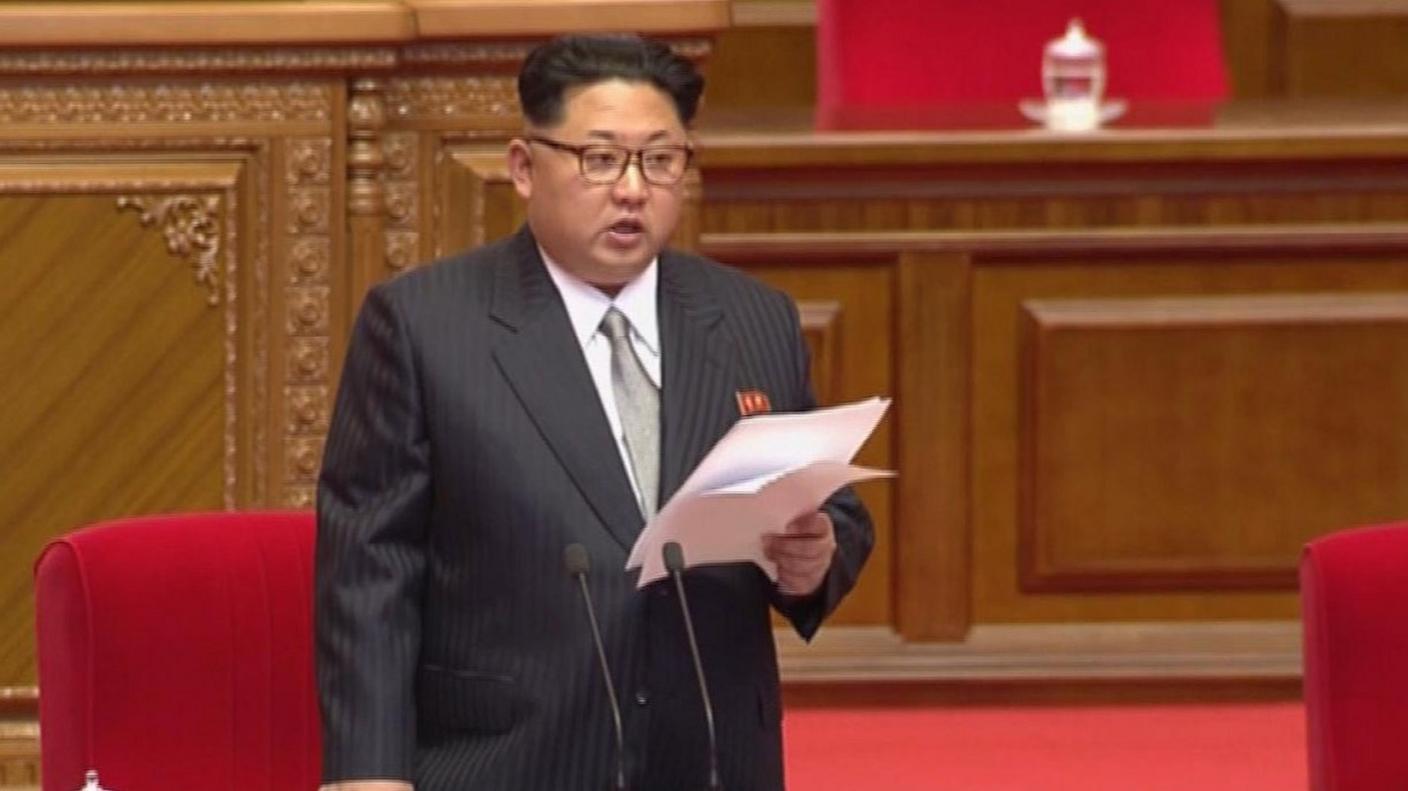
- Published8 January 2016
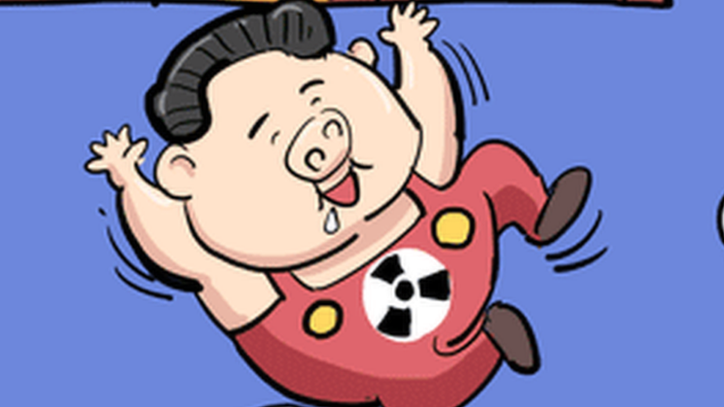
- Published11 September 2023
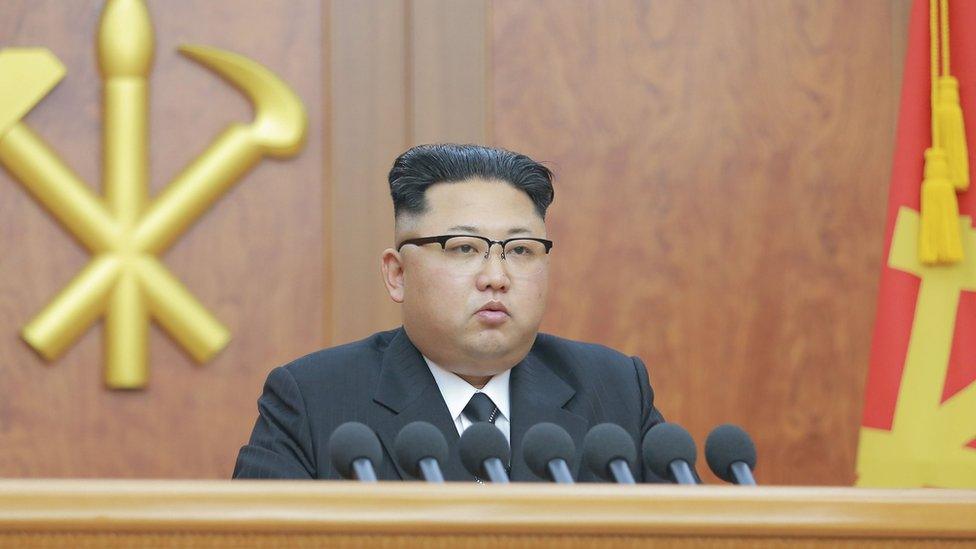
- Published16 May 2015
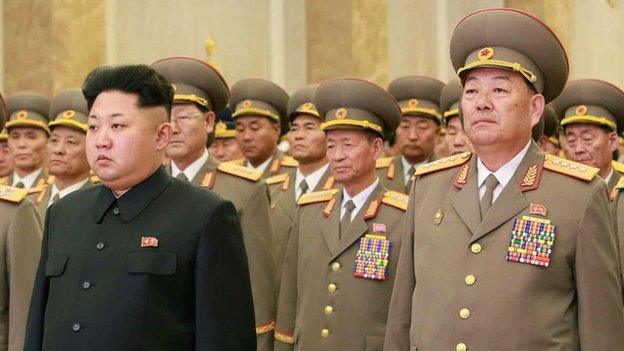
- Published14 October 2014
